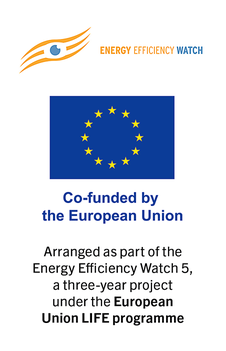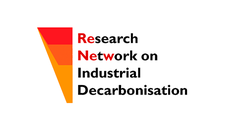Search eceee proceedings
A European industrial development policy for prosperity and zero emissions
Panel: 6. Deep decarbonisation of industry
This is a peer-reviewed paper.
Authors:
Lars J Nilsson, Univ Lund, Env. & Energy Systems, Sweden
Fredrik NG Andersson, Department of Economics, Lund University, Sweden
Chris Bataille, Institut Du Développement Durable et Des Relations Internationales (IDDRI), France
Fredric Bauer, Univ Lund, Env. & Energy Systems, Sweden
Stephane de la Rue du Can, Lawrence Berkeley National Laboratory, USA
Teis Hansen, Department of Human Geography, Lund, University and Department of Technology, Management, SINTEF, Norway
Bengt Johansson, Univ Lund, Env. & Energy Systems, Sweden
Valentin Vogl, Univ Lund, Env. & Energy Systems, Sweden
Max Åhman, Univ Lund, Env. & Energy Systems, Sweden
Stefan Lechtenböhmer, Wuppertal Institute for Climate Environment and Energy, Germany
Danielle Schiro, Environmental Economics and Policy, University of California, Berkeley, USA
Mariësse van Sluisveld, Univ Lund, Env. & Energy Systems, Sweden
Karin Ericsson, Univ Lund, Env. & Energy Systems, Sweden
Abstract
The objective of this paper is to outline and discuss the key elements of an EU industrial development policy consistent with the Paris Agreement. We also assess the current EU Industrial Strategy proposal against these elements. The “well below 2 °C” target sets a clear limit for future global greenhouse gas emissions and thus strict boundaries for the development of future material demand, industrial processes and the sourcing of feedstock; industry must evolve to zero emissions or pay for expensive negative emissions elsewhere. An industrial policy for transformation to net-zero emissions must include attention to directed technological and economic structural change, the demand for emissions intensive products and services, energy and material efficiency, circular economy, electrification and other net-zero fuel switching, and carbon capture and use or storage (CCUS). It may also entail geographical relocation of key basic materials industries to regions endowed with renewable energy.
In this paper we review recent trends in green industrial policy. We find that it has generally focused on promoting new green technologies (e.g., PVs, batteries, fuel cells and biorefineries) rather than on decarbonizing the emissions intensive basic materials industries, or strategies for handling the phase-out or repurposing of sunset industries (e.g., replacing fossil fuel feedstocks for chemicals). Based on knowledge about industry and potential mitigation options, and insights from economics, governance and innovation studies, we propose a framework for the purpose of developing and evaluating industrial policy for net-zero emissions.
This framework recognizes the need for: directionality; innovation; creating lead markets for green materials and reshaping existing markets; building capacity for governance and change; coherence with the international climate policy regime; and finally the need for a just transition. We find the announced EU Industrial Strategy to be strong on most elements, but weak on transition governance approaches, the need for capacity building, and creating lead markets.
Downloads
Download this paper as pdf: 6-082-20_Nilsson.pdf
Download this presentation as pdf: 6-082-20_Nilsson_pre.pdf














